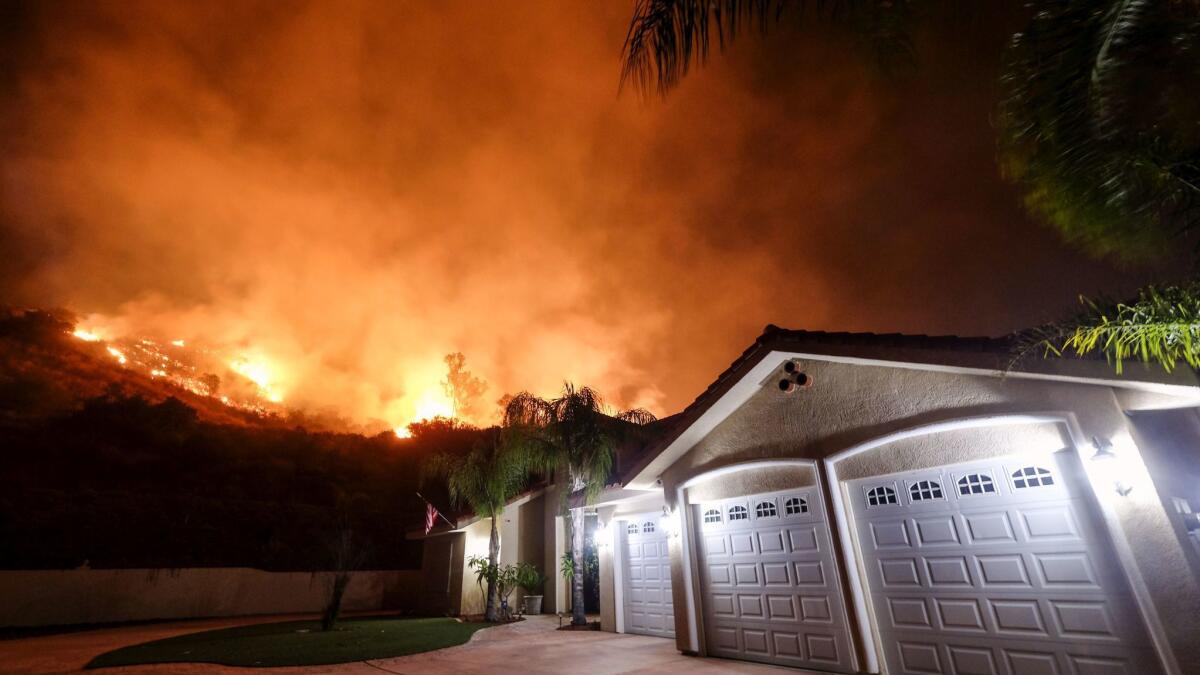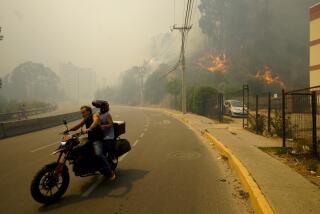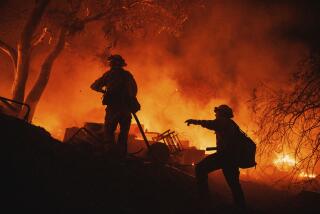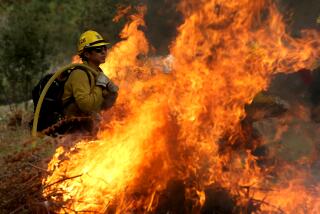Readers React: Our summer of wildfires and climate warning

To the editor: Steve Lopez is correct when he agrees there is indeed global warming. However, he is wrong to concentrate only on summer temperatures. In Southern California, the winters are also getting warmer.
“Winter chill” is the number of hours that temperatures reach 45 degrees Fahrenheit or lower. The trend in winter chill over the last 18 winters has been a reduction of about eight hours per year. In my community adjacent to Agoura Hills and Thousand Oaks, we had 544 hours of chill in the winter of 2000-2001, but only 191 hours this past winter, 2017-2018. Only the winter of 2013-2014 was warmer, with 127 hours of chill.
This means my peach tree — a variety specially developed for the mild winters of Southern California — had only two peaches this year instead of a tree full of them. More important, commercial orchards of peaches, almonds and cherries are struggling because of a lack of winter chill. Yes, warm winters can be as damaging to food crops as torrid summers.
David E. Ross, Oak Park
..
To the editor: Lopez is concerned that this summer’s fire season brings the scary thought that “the future has arrived” in terms of worsening fires. He mentions many climate-related causes but neglects to point out that the last 100 years of fire-suppression in the forests is now having unfortunate consequences as well. As the Little Hoover Commission pointed out earlier this year in its report “Fire on the Mountain: Rethinking Forrest Management in the Sierra Nevada”: “California’s forests are reaching a breaking point. Poor management policies that interrupted the natural and historical cycle of fire, combined now with a changing climate, have led forests vulnerable to disease, insects, catastrophic fire and drought.”
Before humans intervened, natural fires occurred whenever there was lightning and a modest undergrowth in the forest. These fires would sweep away the foot or two of underbrush, leaving the large trees in much better shape, not having to compete for moisture and nutrients with an overgrown underbrush.
By suppressing this natural fire cycle, human intervention has allowed the underbrush to be much higher and thicker, often 10 to 15 feet high. This now results in the larger trees being starved for water and nutrients, making them more vulnerable to disease, insects and drought. It also makes every fire now a towering inferno. Rethinking forest management would be a good — and now very timely — idea.
Grant Mulford, Granada Hills
..
To the editor: Lopez says ignore deniers and then turns around and explains denier beliefs, which they call science, but which actually are opinions, uneducated ones. Every scientific organization in the world agrees our use of fossil fuels is warming the planet.
I also think Lopez’s focus on individual carbon footprints is wrong. Addressing this monumental problem one person or one company at a time will never cut it. Even if we all drove electrics, CO2 levels would continue to rise. The problem is too big. We need a global response, and governments must act.
Lopez doesn’t mention the end of denial even in Congress, where Republicans from the Climate Solution Caucus have introduced carbon pricing legislation, which is what we need. The legislation is not perfect, but it’s a start.
Craig Preston, Costa Mesa
..
To the editor: Lopez is on the money. I will elaborate on one portion of what he says: “What can we do about it legislatively and individually?”
Join an organization that is doing something positive. Citizen’s Climate Lobby works to empower individuals and works to have a carbon fee and dividend enacted at the federal level. Talk to your friends and neighbors about climate change. You might be surprised how many people want a voice.
Write an editorial for your local paper, or do what I am doing: Respond to an article in the newspaper. Let your elected officials know your concerns. They respond to their constituents.
Set a goal of doing one small item each day to further the cause of minimizing climate change. Feel empowered. Take small steps, but do something positive.
Larry Kramer, San Juan Capistrano
Follow the Opinion section on Twitter @latimesopinion and Facebook
More to Read
A cure for the common opinion
Get thought-provoking perspectives with our weekly newsletter.
You may occasionally receive promotional content from the Los Angeles Times.






